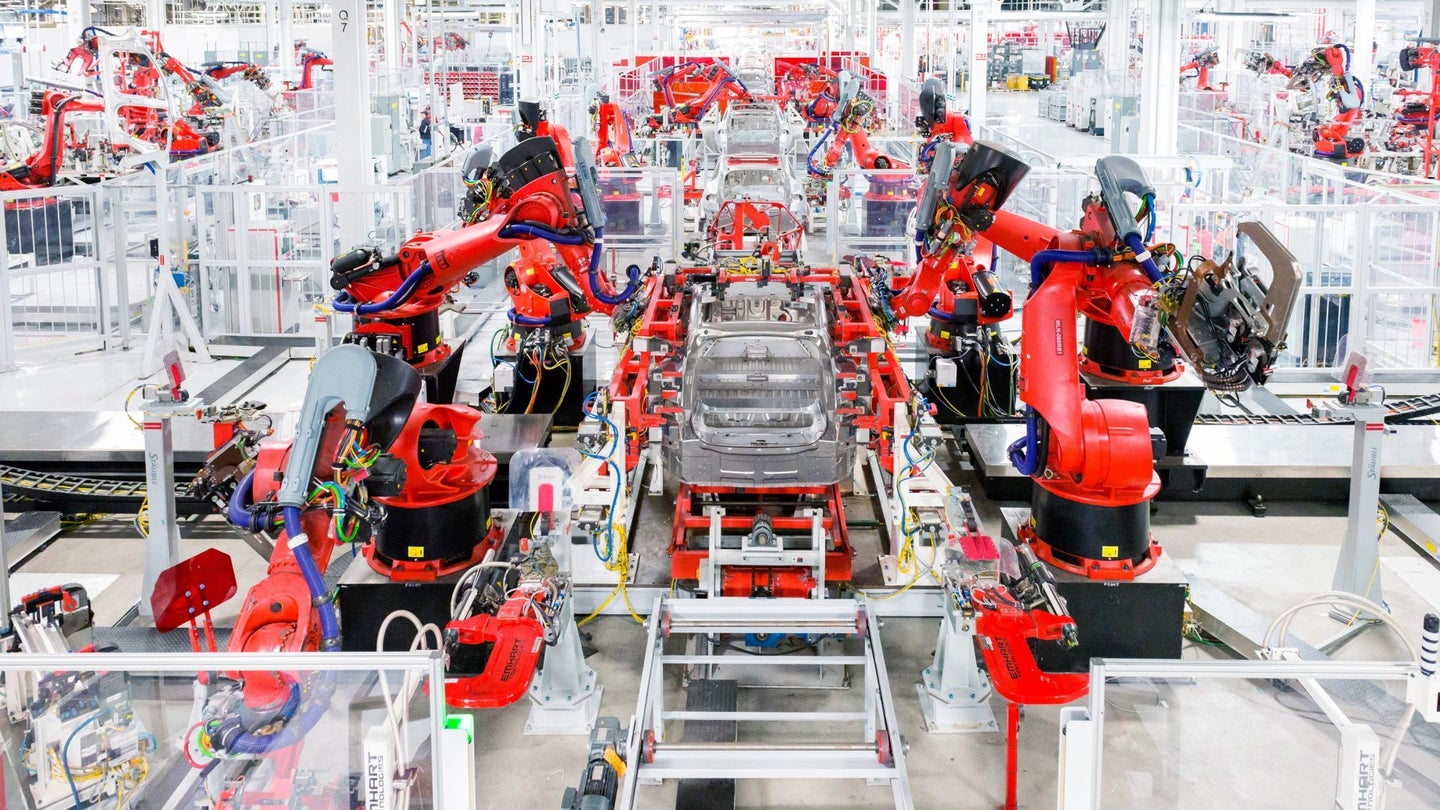Tesla Reaffirms Model 3 Production Goals, Promises 10,000 Units Per Week in 2018
Despite skepticism, Tesla promises to deliver 40,000 units per month in 2018.

Tesla has some big shoes to fill, boys and girls. During the Model 3 delivery event, Tesla CEO Elon Musk noted an interesting figure—10,000. That number, referring to the number of anticipated units of production for the Model 3 in 2018, popped up once more during Tesla's quarter two earnings meeting to confirm it was both accurate and achievable.
Musk is convinced that Tesla will reach its production goal with zero issues. Though he didn't go into much detail to explain how the exponential funding curve works, the gist of Tesla's plans involves rapidly re-investing funds into the company to scale production in order to pump out large qualities of the Model 3 and its underlying parts. Currently, the Model S is being produced at a rate of 385 units per week, so the jump to Model 3 production requires reduced costs and heavy vertical integration in order to achieve mass scaling.
"What people should absolutely have zero concern about, and I mean 0, is that Tesla will achieve a 10,000 unit production week by the end of next year," Musk said, according to Electrek.
Investors are concerned about Tesla's ability to quickly ramp up production without cutting corners. The Model X suffered from heavy quality control issues, enough to feel rushed into production. The Model S also doesn't have the best track record with its quality. From poor painting to demolished A-pillars, one must ask why was Tesla’s quality control so poor, and, more importantly, how does the automaker plan to address this with the Model 3? Musk also has been known to be overzealous with his promises and predictions, so sales numbers being inflated could easily influence stock prices negatively in the long term, should these numbers not be met.
Quality issues aside, Tesla must also procure a recurring supply of enough raw materials in order to steadily increase production. It was speculated that Tesla could easily create a lithium shortage if it ramps up production quicker than Lithium can be mined and processed, however with even more manufacturers getting on board with electric, this shortage could happen much sooner than anticipated.
Tesla has also recently made the decision to build its Model Y on the same platform as the Model 3, citing a decision made by Musk's executive team. Considering that the Model 3 production should be in full force by the time the Model Y is nearing production, the transition process should be simplified in order to produce a large number of its future long range crossovers.
Granted Tesla has had a large number of cancellations on the Model 3, however, since the announcement of the Model 3, the automaker has confirmed an upswing of at least 1,800 net reservations (after cancellations) each day, showing a continued interest in the vehicle. Make no mistake, this is a large commitment which Tesla has made. The completion of its first Gigafactory is only the start of Tesla's plan to revolutionize the electric car industry. Other manufacturers must seriously consider their approach to manufacturing if they want to take out the competition.
